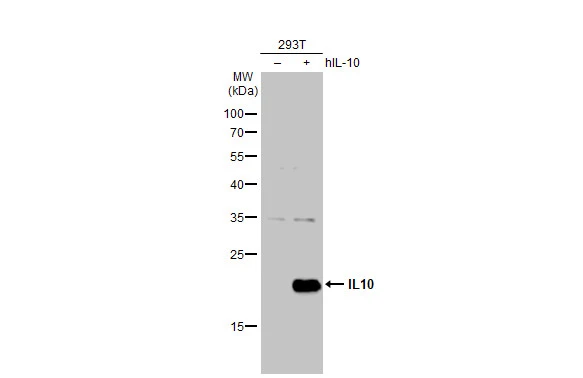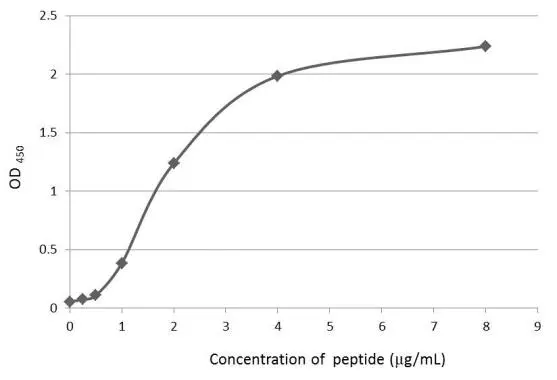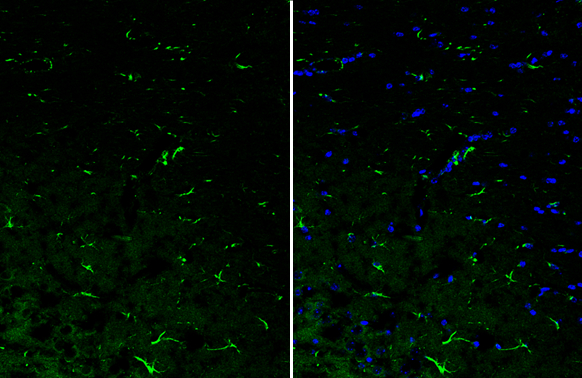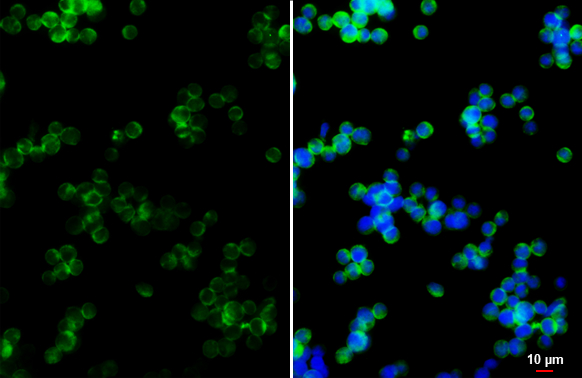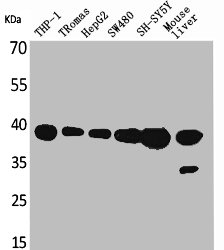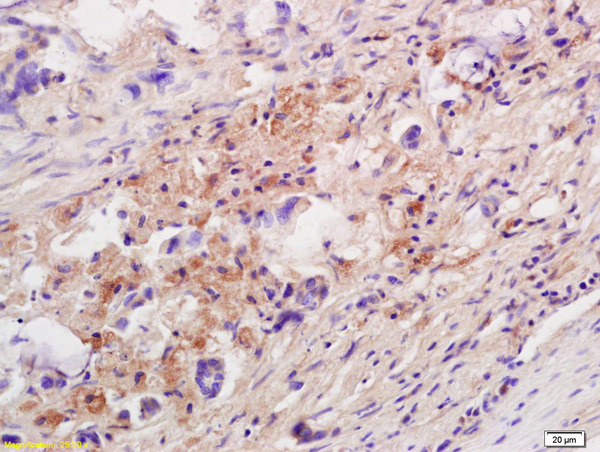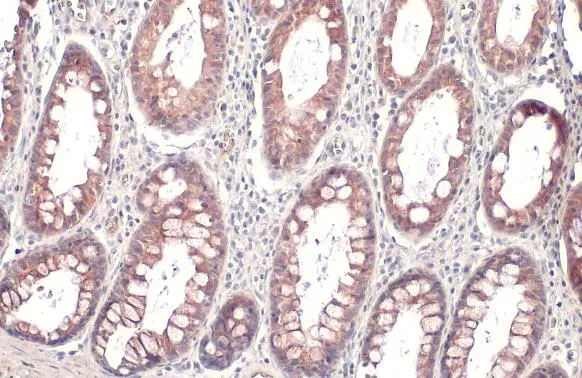
IL10 antibody detects IL10 protein at nucleus by immunohistochemical analysis. Sample: Paraffin-embedded human colon. IL10 stained by IL10 antibody (GTX130513) diluted at 1:500. Antigen Retrieval: Citrate buffer, pH 6.0, 15 min
IL10 antibody
GTX130513
ApplicationsImmunoFluorescence, Western Blot, ELISA, ImmunoCytoChemistry, ImmunoHistoChemistry, ImmunoHistoChemistry Frozen, ImmunoHistoChemistry Paraffin
Product group Antibodies
ReactivityHuman, Mouse
TargetIL10
Overview
- SupplierGeneTex
- Product NameIL10 antibody
- Delivery Days Customer9
- Application Supplier NoteWB: 1:1000-1:10000. IHC-Fr: 1:100-1:1000. ELISA: 1:-1:10000. *Optimal dilutions/concentrations should be determined by the researcher.Not tested in other applications.
- ApplicationsImmunoFluorescence, Western Blot, ELISA, ImmunoCytoChemistry, ImmunoHistoChemistry, ImmunoHistoChemistry Frozen, ImmunoHistoChemistry Paraffin
- CertificationResearch Use Only
- ClonalityPolyclonal
- Concentration1.17 mg/ml
- ConjugateUnconjugated
- Gene ID3586
- Target nameIL10
- Target descriptioninterleukin 10
- Target synonymsCSIF, GVHDS, IL-10, IL10A, TGIF, interleukin-10, T-cell growth inhibitory factor, cytokine synthesis inhibitory factor
- HostRabbit
- IsotypeIgG
- Protein IDP22301
- Protein NameInterleukin-10
- Scientific DescriptionThe protein encoded by this gene is a cytokine produced primarily by monocytes and to a lesser extent by lymphocytes. This cytokine has pleiotropic effects in immunoregulation and inflammation. It down-regulates the expression of Th1 cytokines, MHC class II Ags, and costimulatory molecules on macrophages. It also enhances B cell survival, proliferation, and antibody production. This cytokine can block NF-kappa B activity, and is involved in the regulation of the JAK-STAT signaling pathway. Knockout studies in mice suggested the function of this cytokine as an essential immunoregulator in the intestinal tract. [provided by RefSeq]
- ReactivityHuman, Mouse
- Storage Instruction-20°C or -80°C,2°C to 8°C
- UNSPSC41116161

